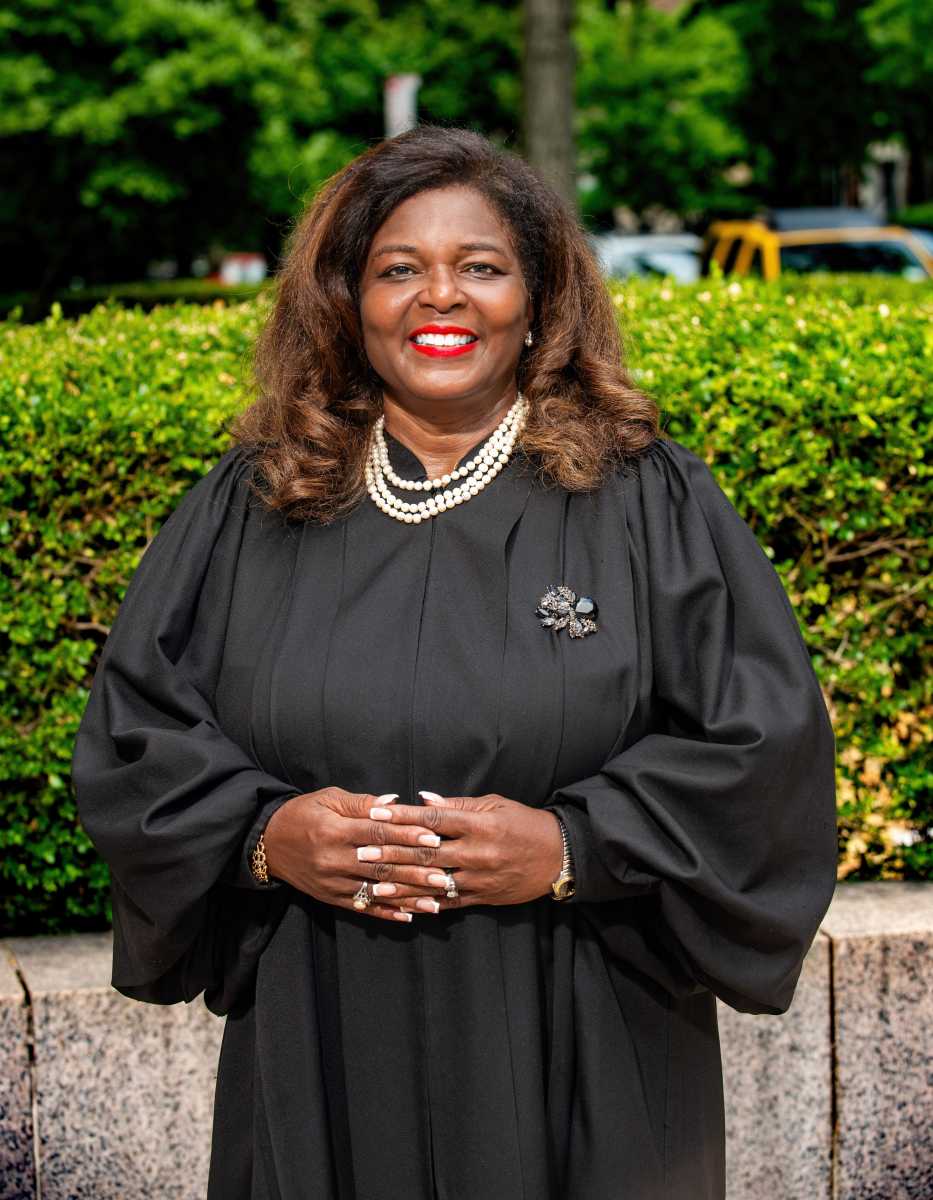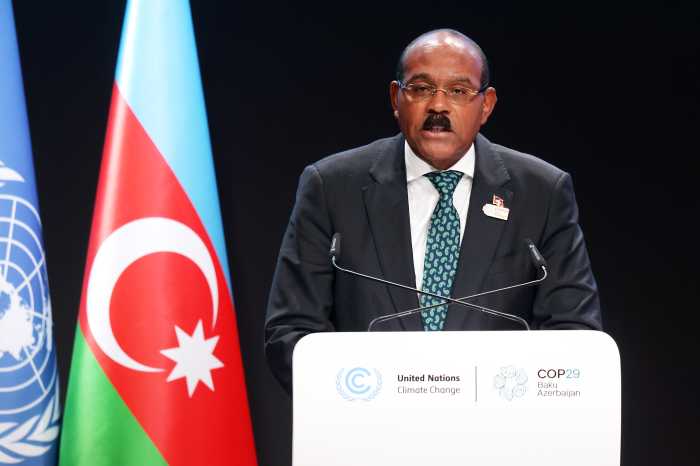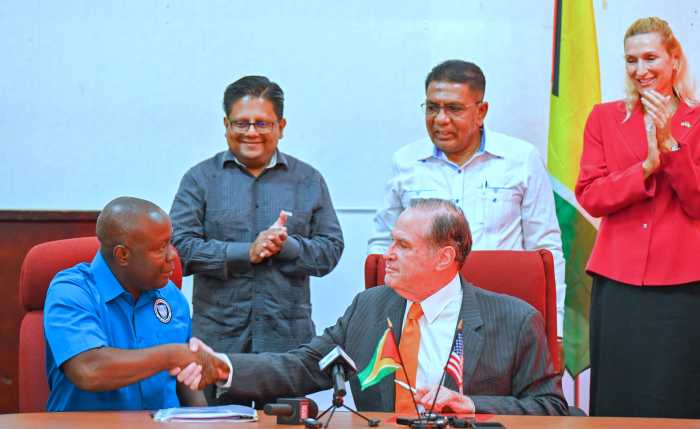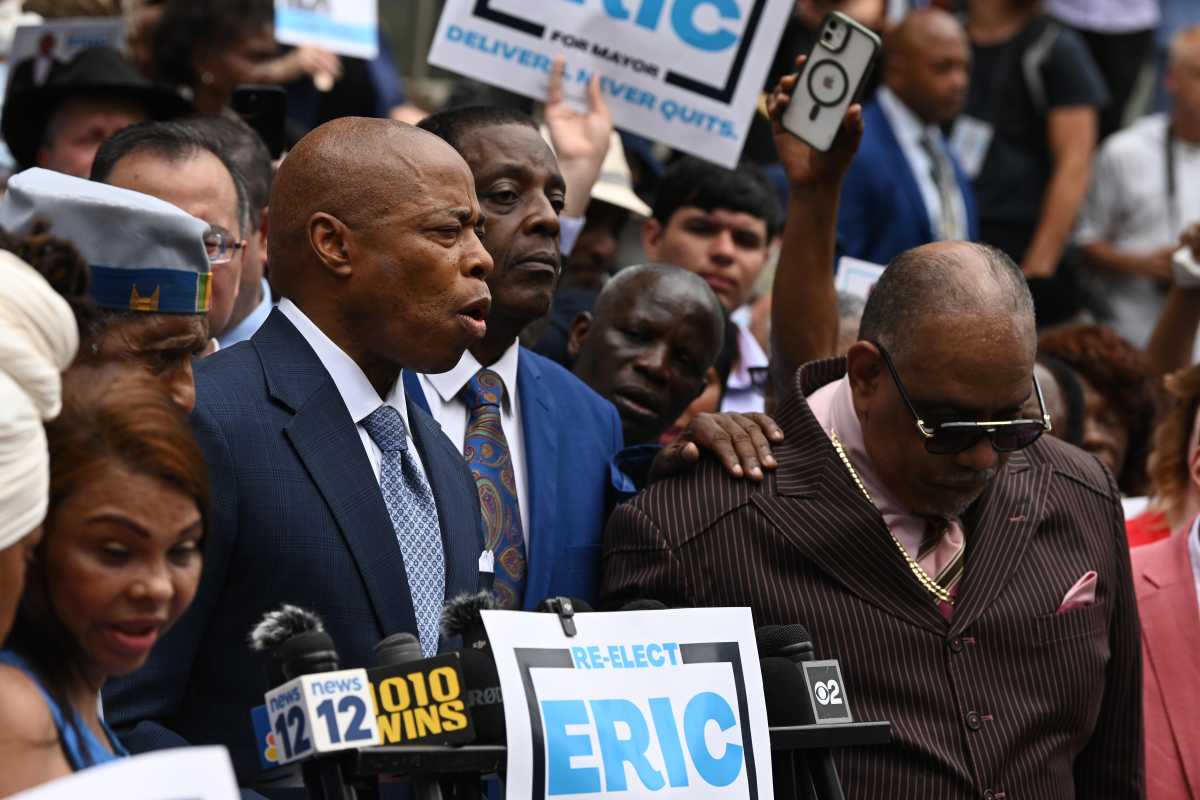Guyanese-American jurist Claudia Daniels-DePeyster, a Democrat and acting Supreme Court Justice in Kings County (Brooklyn), is running for a seat on the bench in New York State Supreme Court.
Justice Daniels-DePeyster, a Brooklyn resident, whose late parents were born in Guyana, told Caribbean Life in an exclusive interview on Sunday that her platform emphasizes her breadth of diverse experience in multiple areas of the law, professional judicial temperament, reputation for issuing “precise and effective decisions”, and tireless commitment to serving the people of Brooklyn, with “empathy, compassion and a focus on rendering verdicts that ultimately find justice for all” who enter her courtroom.
“As a judge, I was appointed to my position,” she said. “The members of the public never voted for me in an election process before, though many already know me through my extensive community service.
“By running for a Supreme Court seat, I have the opportunity to engage with the community on a different level than I previously have,” she added. “I let them know that I was raised in Brooklyn and returned to New York after school to practice law, and that I administer justice with kindness toward defendants who appear before me, and politeness toward defense attorneys and prosecutors alike.
“I have and hold the interests of our Brooklyn communities near and dear to my heart, as I administer justice,” Justice Daniels-DePeyster continued.
While the judicial elections are in November 2024, the 44 male and female District Leaders in the 22 Brooklyn districts are deciding, in the next few weeks, who the Supreme Court Judicial nominees will be. Voting delegates will vote in a convention in August.
Justice Daniels-DePeyster said it is not a June primary process like those for Civil Court Judge, and that candidates will be vying for six available seats.
Justice Daniels-DePeyster said her opponents are Acting Supreme Court Justices Hon. Jeffrey Sunshine (Justice of the Supreme Court, whose term ends 2024); Hon. Sharen Hudson; Hon. Adam Perlmutter; Hon. Chistopher Robles; and Hon. Deepa Ambekar. Lower Civil Court Judges are: Hon. Jill Epstein, Hon. Keisha Alleyne, Hon. Lisa Lewis, Hon. Derefim Neckles, Hon. Inga O’Neale, Hon. Maria Aragona, Hon. Brian Gottlieb and Hon. Odessa Kennedy.
Since there is no Primary process for the Supreme Court positions, the judges in Brooklyn are chosen as the Democratic nominees in the August convention, and then run in the General Election in November.
With the exception of Hon. Sunshine and Hon. Hudson, Justice Daniels-DePeyster said she has the most experience sitting as a judge in New York since 2015.
In addition, prior to that, she said she sat 10 years as an administrative law judge for the New York Police Department (NYPD).
“I bring a wealth of knowledge to the bench, reflected in my decisions, and we need judges who know how to do the job before they get seated in Supreme Court,” said Justice Daniels-DePeyster, who announced her candidacy last year, but has since used that time to acquaint herself with the process, having never ran for judicial office.
“I have a good chance of winning a seat,” she added. “Very few judges bring the wealth of experience I have. I was a practicing attorney for 20 years before I became a judge. I practiced landlord tenant, real estate, guardianship, administrative law and criminal law in private practice, as well as working for the NYC Fire Department and the NYPD.”
Justice Daniels-DePeyster said she did every part in lower Criminal Court before she was elevated on her work performance to the position of Acting Supreme Court Justice in 2022.
“I reduced my caseload from 1,800 cases to 1,550 cases before being elevated to the Trial Part in lower criminal court,” she said, stating that she does suppression hearings, hearings to review sentences, felony bench and jury trials to verdict and sentence, and review search warrants in Kings County Supreme Court.
Justice Daniels-DePeyster said recently issued two decisions that have gained “compelling notice” throughout New York’s legal community, providing tremendous credibility and momentum to her campaign to serve the people of Brooklyn in a higher court.
In People vs. Ahmad Nichols, she said she relieved a private attorney for being derelict in his duties.
Justice Daniels-DePeyster said this happened after a case in which she lifted a protective order on a Thursday, so the attorney could gather information for his argument.
Despite the case being scheduled for the following Tuesday, she said the attorney “contemptuously” took another case on that Friday.
Over several years, Justice Daniels-DePeyster said this attorney “consistently displayed an egregious record of asking for multiple adjournments, showing up hours late for cases, claiming to be sick for weeks, scheduling multiple trials simultaneously, assigning second seats to trials who file notices of appearance when he cannot attend, filing affirmations of engagement on particular days when trials were not actually moving forward, and appearing in one courtroom when he is assigned to try a case in another.”
Clearly, Justice Daniels-DePeyster’s decision spells out the attorney’s acts of deception by using his own language, and specifically defines his record of “nefarious practices”, which ultimately empowered her to remove him from the case, including failing to list trials pending before being approved for trial.
Facilitated by her decision, State-appointed attorneys (18Bs) can be assigned as replacements for attorneys removed due to records of similar behavior.
As a result of Justice Daniels-DePeyster’s actions in the case, the Office of Court Administration (OCA) requested trainings be performed on how to relieve a private attorney without violating a defendant’s constitutional rights.
The Deputy Chief Judge also confirmed that Justice Daniels-DePeyster’s arguments in the case worked well, and would benefit the judicial system moving forward. The case was published in New York Reporters.
In People v Ruiz, Justice Daniels-DePeyster said she applied a decision found in People v Mosley, where the NYS Court of Appeals determined that, in a case where there is a jury who can reliably identify a defendant, the testimony of an identifying police officer not involved in the case is not necessitated.
Justice Daniels-DePeyster said this determination is arrived at through a two-prong test of questions: Prong 1: Is an identifying officer independently familiar enough with the defendant to deem their testimony reliable in a case? For example, did they have at least 10 face-to-face encounters with the defendant, including phone calls, etc. Do they know the defendant well?
Prong 2: Does the jury need assistance in identifying the defendant? For example, is the video of the defendant blurry?
If either of these criteria is not met, Justice Daniels-DePeyster said the testimony of the officer is deemed unnecessary.
She said she was the first judge to apply the Mosley decision, rendered after defendant Farod Mosley took his shooting case from a lower court all the way to the Court of Appeals.
While on the way, the Appellate Division allowed an officer Kilburn’s testimony against him, based on “an extensive basis of knowledge.”
Justice Daniels-DePeyster said once the case reached the Court of Appeals, it was reversed when the court found that the people did not establish that the detective “was sufficiently familiar with Mosley to render his identification helpful to the jury.”
The court further found that, “The People failed to demonstrate that the jury needed Kilburn’s help.”
Justice Daniels-DePeyster said the video was found to be too blurry to make any real determination as to the shooter’s identity.
In her decision in People v Ruiz, Justice Daniels-DePeyster said she found that the criteria of Prong 1 were met, while that of Prong 2 were not, because “the male’s appearance from the time of the surveillance video to the trial had not changed, and even his haircut was the same.
“The individual in the video can be seen walking around over an extended period of time with different angles of his face toward the camera at various times,” she said. “Moreover, he was not disguised in the surveillance video.
“Given the video’s clarity, the jury would be as well suited as any other person to make an identification from the surveillance video,” she added. “Therefore, Officer Trunk is not permitted to identify Mr. Ruiz on the surveillance video presented by the People as evidence before the jury.” The case was also published in New York Reporters.
While Justice Daniels-DePeyster’s was always known as a professional jurist, with extensive experience and a keen knowledge of the law, she said these decisions have established her as a creative and precedent setting legal mind, emerging on a notably elevated level.
As proud graduate of Midwood High School in Brooklyn, Justice Daniels-DePeyster said she earned her undergraduate degree from the University of Buffalo and her Juris Doctorate (law degree) from the University of North Carolina at Chapel Hill School of Law.
In April 2015, as a testament to her diverse and comprehensive legal background, she was appointed by Mayor Bill De Blasio to serve as a criminal court judge.
She sat in Kings County Criminal Court until early February 2022, presiding over the Youth Part for many years and helping young adults ages 17-24 complete diversion programs and receive dismissals of their criminal cases. She also presided over a Trial Part in Kings County Criminal Court during the pandemic.
In April 2022, Judge DePeyster was appointed as an Acting Supreme Court Justice in Kings County Supreme Court-Criminal Term, where she presides over a felony part and a Gun Part.
Justice Daniels-DePeyster said she engages in extensive work with Brooklyn’s youth, steering them on the right path whenever she can.
She said she regularly talks to kids in high schools about the law and how it affects their lives.
Justice Daniels-DePeyster said she provides the youth with tours of her courthouse, educating them on the court system and what the courts do, knowledge of the law, career advice and encouragement for the future.
In addition, she said she introduces young adults to defense attorneys and prosecutors, who inform them on what to do in street encounters and other life decisions involving potential criminal activities and consequences.
Justice Daniels-DePeyster said the youth are also provided a handbook outlining what each court, and court staff, are responsible for, when adjudicating civil and legal disputes.
She said the youth will “aspire to great heights, when we provide them the knowledge and tools necessary to see and build a better future.”
Earlier in her career, Justice Daniels-DePeyster said she was a solo practitioner, and that her private practice included dealing with real estate, housing, and landlord/tenant matters, as well as criminal defense, surrogate law and guardianships.
She said standing up for others as a litigator equipped her with the crucial insight that can only be gained by seeing the law from both sides of the bench.
From defending tenants facing eviction, to defending people accused of crimes, to immersing herself in family law work, Justice Daniels-DePeyster said she learned early in her career the “tremendous gravity often connected to the majority of cases heard by our courts.”
From 2001 through 2015, Justice Daniels-DePeyster said she worked in various capacities for the NYPD. As an agency attorney, she said she was responsible for prosecuting officers and detectives within the agency, and often met with the police commissioner on matters relating to police misconduct.



























